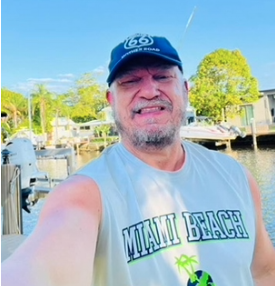Sports Betting Here to Stay in Florida as SCOTUS Refuses to Take Up Challenge
The U.S. Supreme Court on Monday refused to take up a challenge to an agreement that gave the Seminole Tribe exclusive rights to handle online sports betting in Florida. Miami's Magic City Casino parent, West Flagler Associates, along with the Bonita-Fort Myers Corp., filed the petition. Bonita-Fort Myers Corp operate racetracks and poker rooms in Florida.
In March, the Florida Supreme Court ruled that the companies had filed the wrong type of petition to challenge the 2021 compact between the Seminole Tribe of Florida and Gov. Ron DeSantis’ administration.
“What’s important with today’s announcement is that the most significant barrier to online sports betting in Florida has been removed,” said Daniel Wallach, a South Florida attorney and sports betting law expert who had filed a brief asking the Supreme Court to either take up the case or reverse it outright.
The companies say the compact gives the tribe a sports betting monopoly in the nation's third-most populous state and that the U.S. Department of Interior wrongly approved the compact even though it violates the Indian Gaming Regulatory Act, which requires that gambling occur on tribal lands.
The plaintiffs questioned whether online sports bets that can be placed from anywhere in Florida could be considered to be on tribal land when only the computer servers that host the betting services are located there.
It's an argument the U.S. Government previously supported in USA vs. World Sports Exchange and Jay Cohen. In that 2000 case, a court found that the location of the server (Antigua) was not where a bet took place but rather the where the gambler making the bet was located (in the U.S.).
The decision by SCOTUS not to hear this matter is likely to serve a blow to individual states like Michigan as they recently demanded Curacao-based Bovada cease taking bets from its residents. Bovada is also run by a Canadian tribe, the Khanawake. Bovada is yet to respond to the Michigan Gaming Control Board cease & desist letter sent out the last week in May.
Bovada had previously pulled out of Maryland per a settlement agreement. A 2011 probe of Bovada's predecessor, later taken over by the Maryland Attorney General, was initially launched by the Queens District Attorney's office. Bovada does not take bets from New York State residents. Both matters were prior to SCOTUS tossing out the Professional and Amateur Sports Protection Act in May 2018.
In their state court challenge, West Flagler Associates and Bonita-Fort Myers Corp argued that the deal creates a backdoor way out of a requirement, passed by voters in 2018 as an amendment to the Florida Constitution, that a citizens initiative is needed to expand casino gambling outside of tribal land. The tribe has argued that the Legislature has the authority to decide where online gambling is initiated and that the amendment doesn’t change that.
Attorneys for DeSantis and the legislative leaders have said that sports betting is different from casino gambling and therefore isn’t prohibited by the amendment.
The tribe launched its online sports betting operation late last year, and Florida’s share of 2024 revenues is already more than $120 million. State economic forecasters predict that the revenue sharing from tribal gambling could total $4.4 billion through the end of this decade.
Monday’s decision could encourage other tribes to follow the same path to operate online gambling, Wallach said.
“Tribes in other states stand to benefit from this decision because now they have a clear roadmap that has cleared judicial review,” Wallach said. “I would expect to see efforts ramped up in other states.”
The Associated Press was used for portions this article.
|
|
















